At Kingswood Church, we affirm that all people are worthy of life, love, and healing- no matter what they look like, no matter where they are on their journeys, no matter what they are or aren’t able to do. Our congregation is deeply committed to helping people be whole in Christ including spiritual, emotional, and physical well-being.
Take some time each week to promote a healthier state of mind and outlook.
Take some time each week to promote a healthier state of mind and outlook.
- Connectedness: Time with friends, family, or community
- Values: Engage in activities that provide you with a sense of value and that are important to you
- Achievement: Do something that provides you with both a sense of pleasure and achievement
- Self-Care: Schedule activities that provide you with a sense of self-care
- Talk: Talk openly about how you are feeling and what you might be thinking
- Staying present: Find ways to connect yourself to the present moment
- Coping skills: Learn, practice, and refine some skills that help you cope with pressure or stress
- Relaxation: Switch off and relax your mind and body.
- Physical Activity: Exercise is a great tool for boosting mood and reducing anxiety
Mental Health Matters for All
Mental Health for People from Racial and Ethnic Minority Groups
Everyone deserves access to respectful and culturally appropriate care.
Everyone deserves access to respectful and culturally appropriate care.
- Members of racial and ethnic minority groups experience challenges that may require unique mental health support.
- Addressing and reducing barriers to treatment are the first steps to building more equitable health systems. Support the mental well-being of Black communities.
- Call 988 for crisis support 24 hours per day. Help is available in English and Spanish.
- Culturally and linguistically appropriate information and services can help provide good mental health support for those who need it.
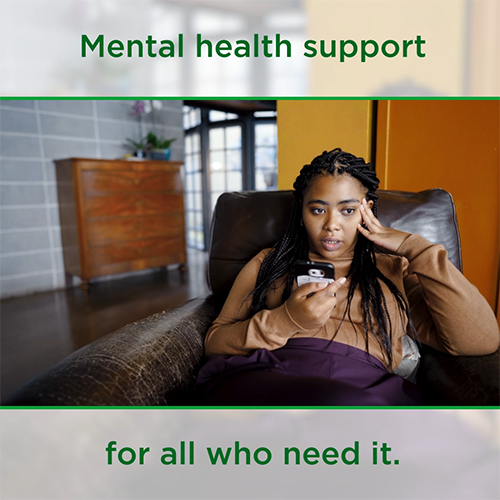
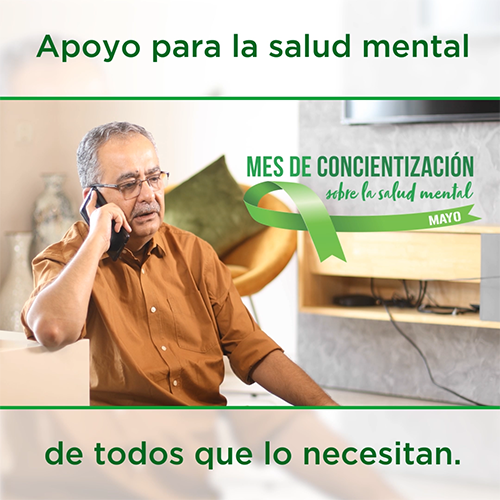
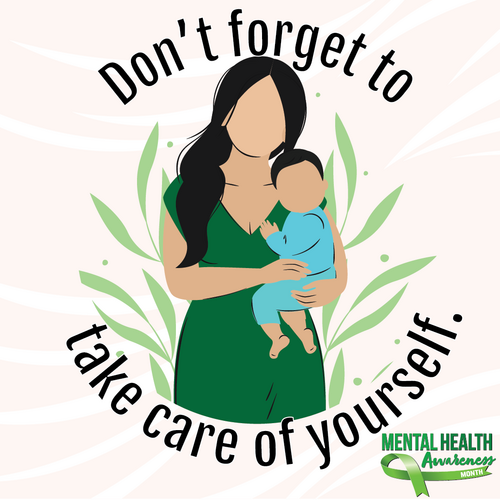
Maternal Mental Health
Pregnancy and parenting can be joyful and can also present a variety of strong emotions.
To all the moms and mother figures in our lives: For all you do to support others, we hope you have the support you need.
Pregnancy and parenting can be joyful and can also present a variety of strong emotions.
- Strong emotions may include feeling overwhelmed, scared, tired, worried, and inadequate. Depression, anxiety, and other symptoms during and after pregnancy are common and treatable. They affect new parents of every culture, age, gender, race, and income level.
- For many people, these feelings go away on their own, in time. But for some, these emotions are more serious and require assistance. Help is available. You are not alone. Asking for help can help keep you and your baby as healthy as possible.
- Parenting children can be filled with excitement and stress.
- Proper self-care and seeking help when you need it can help you maintain good mental health.
To all the moms and mother figures in our lives: For all you do to support others, we hope you have the support you need.
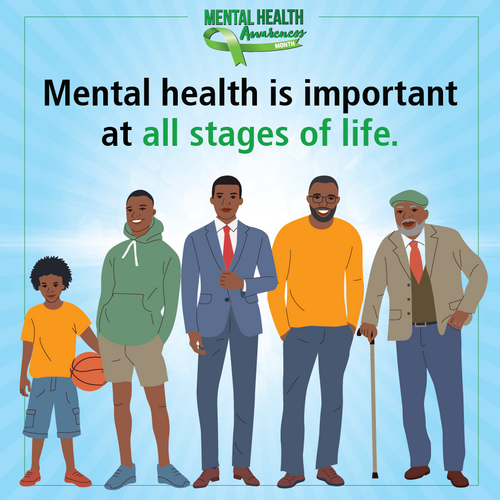
Mental Health Needs of Older Adults
As we age, we may experience life changes that impact our mental health.
Staying engaged is great for mental well-being, especially when we are older. Reach out to an older friend or loved one and remind them that you see them, hear them, and support them.
As we age, we may experience life changes that impact our mental health.
- It’s never too late to get help. Mental health treatment can be part of a wellness program to help older adults live happy and fulfilling lives.
- It is important to remember that older adults may have different mental health symptoms. For example, a lack of interest in some activities.
- Talking about mental health can help older adults feel more comfortable asking for support.
- Mental health is important at every age. Spending time with friends and family can boost older adults’ mental and physical health.
Staying engaged is great for mental well-being, especially when we are older. Reach out to an older friend or loved one and remind them that you see them, hear them, and support them.
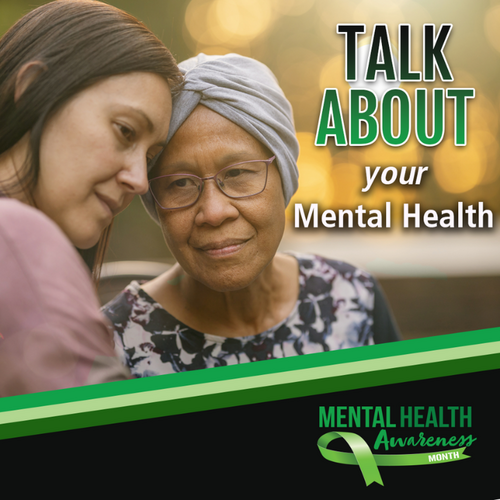
Mental Health for Veterans, Service Members and their Families
We honor those who served our country and community. We also honor their families, friends, and fellow service members who mourn them.
- For those that serve or who have served, crises can be heightened by their experiences during military service.
- There is help for those struggling with grief, loss, or trauma.
- Don’t be afraid to let your friends know what you need when they ask; they want to help. You can also reach out to confidential 24/7 services like the Veterans Crisis Line (dial 988 then press 1).
- Talk to other veterans who have gone through the same kind of trauma that you have. You can access groups through your local VA hospital VFW or American Legion.
We honor those who served our country and community. We also honor their families, friends, and fellow service members who mourn them.
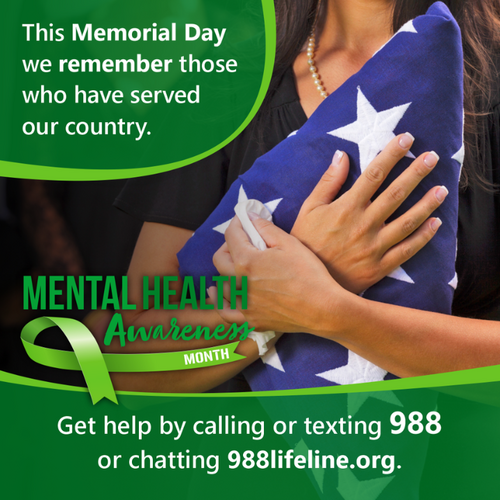
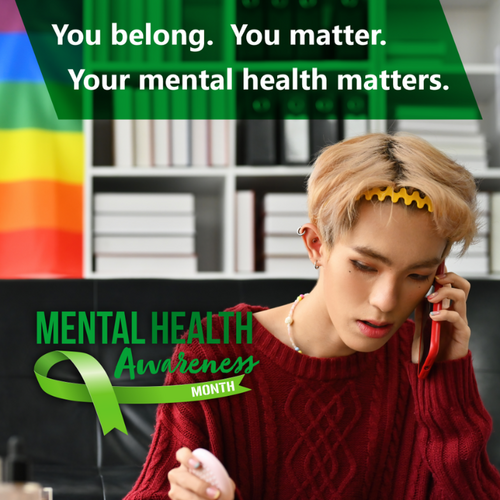
Mental Well-Being in the LGBTQIA+ Community
Inclusive families, schools, churches, and societies can support mental health in the LGBTQIA+ community.
We celebrate the identities of LGBTQIA+ people. You belong. You matter. Your mental health matters. And you are not alone.
Inclusive families, schools, churches, and societies can support mental health in the LGBTQIA+ community.
- Family support is important for the well-being of LGBTQIA+ youth: it can reduce their risk for depression, substance use, suicide, and other mental health challenges.
- Social support, including from friends, families, and communities can help LGBTQIA+ people feel loved and accepted.
- Peer support can be a lifeline for LGBTQIA+ people facing mental health issues.
- Support and participate in Kingswood’s Q fellowship.
We celebrate the identities of LGBTQIA+ people. You belong. You matter. Your mental health matters. And you are not alone.
